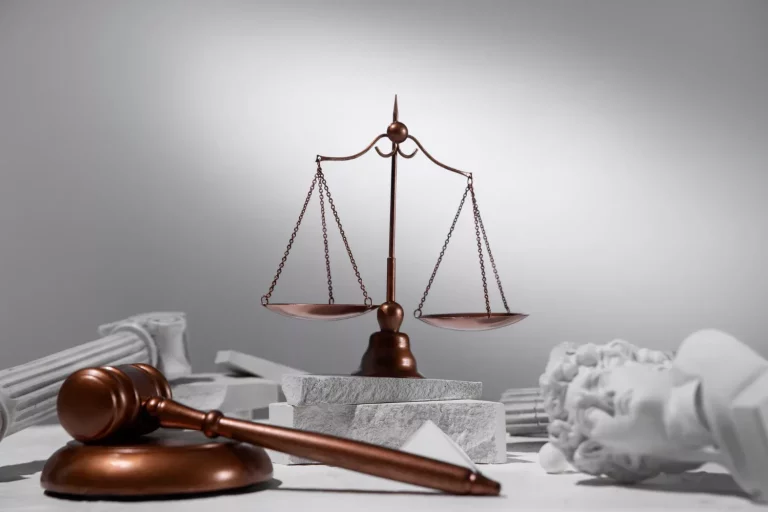Stages of Divorce for the Initiator
Ever wondered what goes through the mind of the spouse who decides to end a marriage? As experienced divorce lawyers, we have seen the stages of divorce for the initiator firsthand. From contemplation to final resolution, this article will shed light on the emotional journey of those who take the difficult step of seeking a divorce.
From the point of view of the initiator, the stages of divorce include preparation, filing the petition, and finalization. These stages are outlined in the Uniform Marriage and Divorce Act (UMDA).
Emotional turmoil
At first, you might feel relieved or empowered when you decide to end your marriage. But soon, these feelings can be replaced by guilt and sadness as reality sets in.
As the divorce process goes on, you might struggle with strong feelings of doubt and regret. You could start questioning whether you made the right choice or if you could have done more to save the relationship. These thoughts can cause deep emotional pain as you try to accept the end of your marriage.
During the legal process, your emotions can swing widely. For real, you might feel anger and resentment towards your soon-to-be ex-spouse, and at other times, feel intense sadness and longing for the past. You may also feel lonely and isolated during this challenging time.
Throughout this path, it’s normal to have mixed emotions, ranging from relief and empowerment to guilt and regret. This emotional storm can be very overwhelming, making it hard to see a way forward. However, with time and support, you can come to terms with your decision and start to heal from the pain of the divorce.
Decision-making process
A person might start feeling unhappy or dissatisfied in their marriage. This feeling can lead them to think about separation and eventually divorce. They might begin to think about why they are unhappy and if the problems can be fixed within the relationship.
As these thoughts grow stronger, the person may seek advice from friends, family, or professionals to help understand their feelings and make a decision. They may also consider the potential consequences of divorce, like financial issues or the effect on children.
Sooner or later, the person reaches a point where they decide to go ahead with the divorce. Basically, this can be a tough and emotional choice as they accept that their marriage is ending and think about how their life will change.
After deciding, they might start taking practical steps towards divorce, such as talking to a lawyer or discussing the decision with their spouse. This can be a hard time as they deal with the legal process and the emotions of ending a long-term relationship.
During this time, the person may feel a mix of emotions, from sadness and guilt to relief and hope for the future.
Communicating intentions
This can be a tough and emotional time since it involves talking about wanting to end the relationship. The person who wants the divorce might have a hard time finding the right words and worry about hurting their partner.
At the start, they may feel overwhelmed thinking about having this talk. They’ll probably look for the right moment and place to discuss it, hoping to be clear and respectful. This period is often filled with uncertainty and anxiety about how their partner will react.
As they prepare for the conversation, they might feel a mix of guilt, sadness, and even relief. They could be unsure of how to bring it up and worry about what will happen after. Let me explain, still, they know they need to talk about it to move forward with the divorce.
When they finally have the talk, finding the right words can be difficult. They might try to be honest and kind while also protecting their own feelings. This conversation is often very emotional, and both people need to be open and honest with each other.
Legal proceedings
To start the divorce process, you need to file a petition with the court and send official documents to your spouse. Usually, the first step is mediation or negotiation to try and settle key issues like custody, support, and dividing property.
If you can’t agree outside of court, the next step is litigation. This means both sides present evidence and arguments to a judge, who will decide the unresolved issues. This can take a long time and get expensive due to court schedules and legal fees.
All kidding aside, once a decision is made, the final step is the divorce decree. This legal document officially ends the marriage and lists the settlement terms. Both parties must follow this decree to avoid legal trouble.
Divorce can be very emotional and stressful. It’s very important for the person initiating the divorce to understand their legal rights and duties. Support from friends, family, or a therapist can be helpful.

Moving forward
As they move to the next stage, they need to actually file for divorce and tell their spouse about their decision. This can be a hard and emotional time, as they start to break apart the life they shared.
Once the legal process of divorce begins, the person who initiated it might feel overwhelmed by all the paperwork, negotiations, and decisions they need to make. They also have to deal with issues like child custody, dividing assets, and financial support. This stage can be very stressful and anxiety-inducing as they try to handle both legal various problems that may occur and emotional distress.
Come to think of it, as the divorce progresses, the person who started it may begin to feel a sense of closure. They might start to see an end in sight as they work on finalizing the divorce terms. This can bring feelings of relief and healing as they start to imagine a future without their spouse.
When the divorce is final, they may experience mixed emotions – sadness for the end of the marriage but also hope for a fresh start. They might feel a sense of freedom and independence as they begin to rebuild their life on their terms. This time can be one of reflection and personal growth as they come to terms with their decision and move forward into a new chapter of their life.
The Closing Remarks
Going through the stages of divorce as the initiator can be emotionally challenging and exhausting. From contemplation to acceptance, the process is filled with ups and downs.
What TheBostonDivorceLawyers is finding useful to is, it is important to acknowledge your feelings, seek support, and focus on self-care as you work through the difficult path of ending a relationship. Remember, healing takes time and it is okay to prioritize your well-being.







